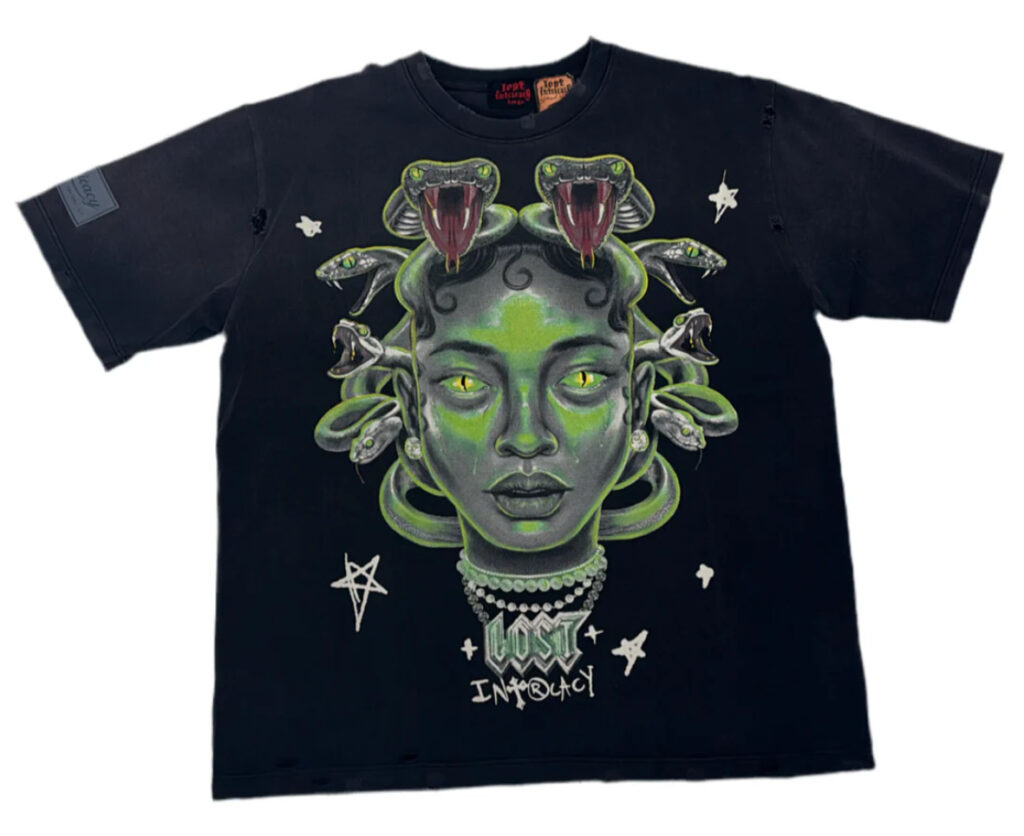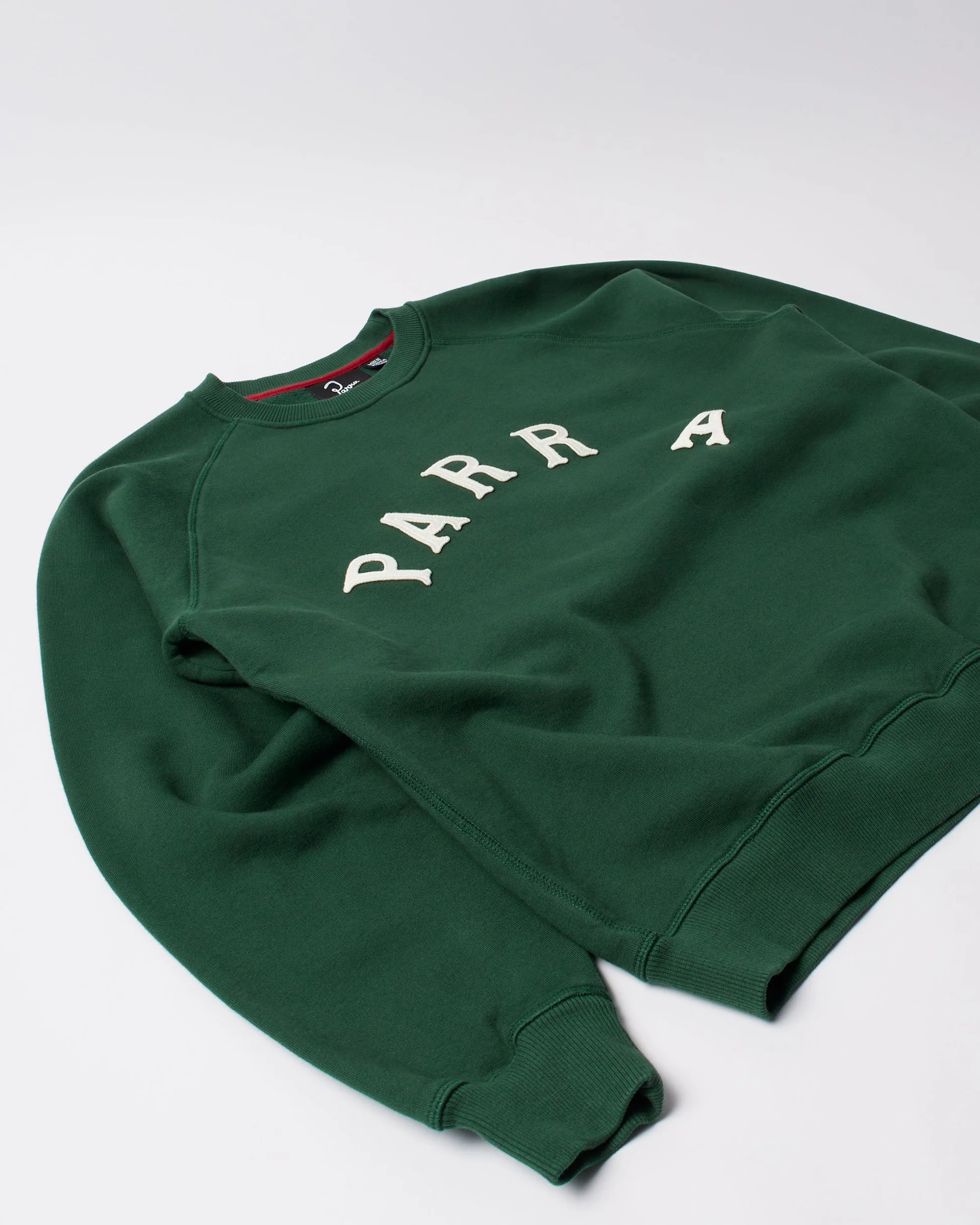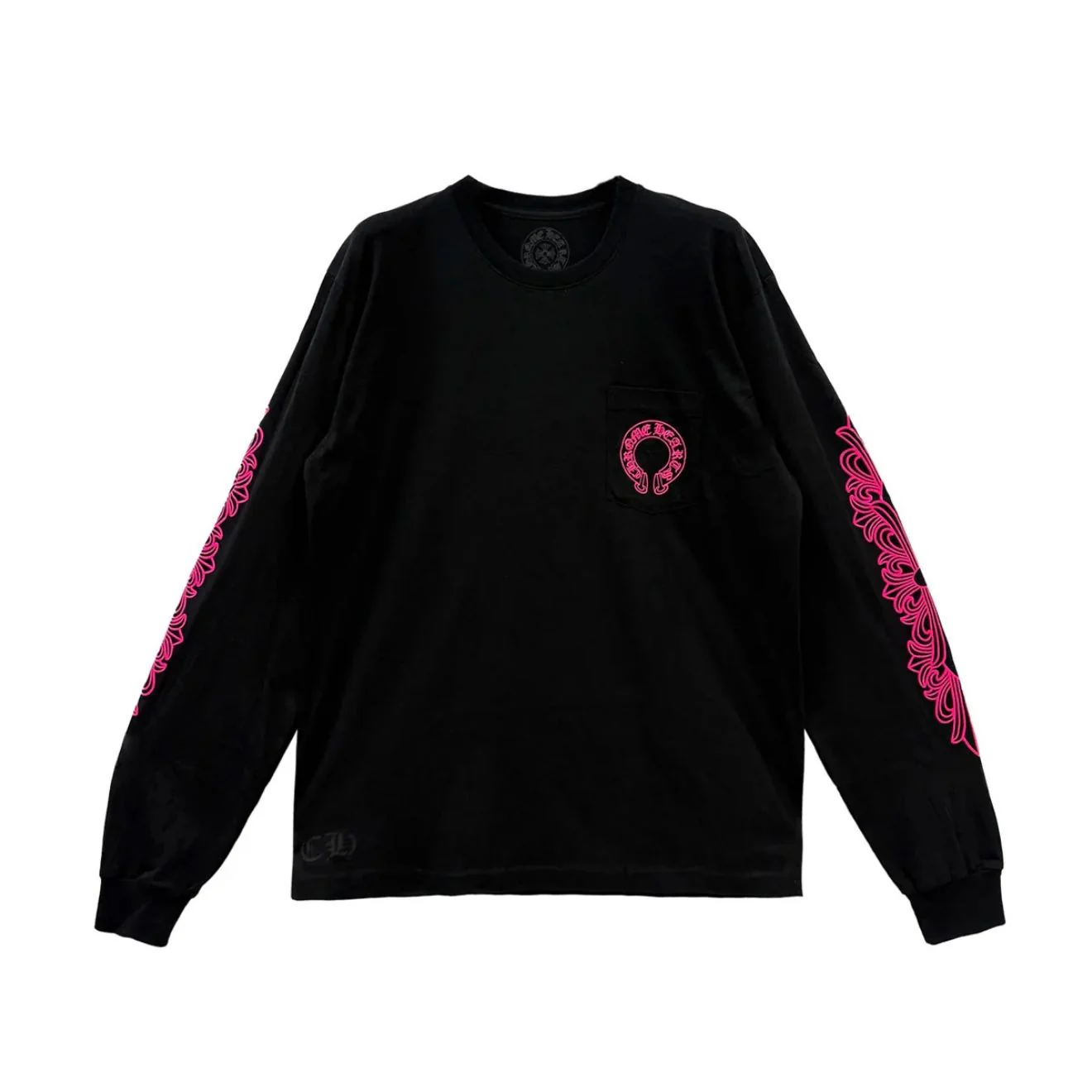
In an era where graphic tees often reduce themselves to disposable aesthetics—quick-hit slogans, recycled icons, flash-in-the-pan virality—the Lost Intricacy ‘Medusa’ Tee arrives with the kind of deliberate visual storytelling that feels both haunting and hand-forged. It does not merely aim to impress. It summons.
Drawing its name from the mythic figure whose face could turn men to stone, the tee is not just an ode to Medusa as icon, but as metaphor—a symbol of misunderstood power, defiance against patriarchal framing, and the beauty of something too dangerous to reduce. It’s wearable armor for those who know that silence is not weakness, and that gaze is its own kind of weapon.
Garment as Canvas: Texture and Composition
Cut from heavyweight cloth fabric, the Lost Intricacy Medusa Tee avoids the airy drape of trend-driven silhouettes. Instead, it holds its shape, constructed with intent and structure, creating a clean frame for the image to inhabit. The fit is slightly oversized—modern but not baggy—evoking 90s grunge tees and DIY punk merch without crossing into costume.
The cotton itself is pigment-dyed, delivering a faded black base with subtle variance in tone—like charcoal smudged across a canvas. Each shirt carries slightly different undertones, giving the illusion of age and permanence. The result is not “vintage” in the fast-fashion sense, but worn-in with dignity—a piece that looks like it’s already been through something, and come out transformed.
Flat-locked stitching along the sleeves and hem speaks to quality construction, while the ribbed neckline anchors the garment with tactile weight. This is not a disposable tee. It is archival in spirit, collectible in practice.
The Graphic: Medusa Unbound
The centerpiece of the tee is, of course, the Medusa graphic. But this is no classical reproduction or pop-art remix. It’s a reinterpretation—fragmented, shadowed, and inverted. Her face, pulled from the chiaroscuro of myth, emerges in halftone layers and digital decay. Instead of snakes rendered in clean coils, her serpentine hair forms a storm of motion, writhing like corrupted signal, flickering like heat distortion.
Her eyes do not look out—they consume. They are pools of negative space, bleeding into the backdrops that shape her features. The mouth is half-open, as if caught between warning and invocation. There is nothing ornamental about this Medusa. She is neither muse nor monster. She is autonomous.
Below the image, in razor-thin serif type, the word “LOST INTRICACY” appears—half-buried, eroded, and centered like a title on a tombstone. The minimalism of the font creates contrast with the maximalism of the graphic, echoing the balance of chaos and restraint.
Symbolism in Fabric: Reclaiming the Myth
What sets the ‘Medusa’ Tee apart from its graphic contemporaries is its intentional re-contextualization of mythology. Medusa, often reduced to her monstrousness, is reimagined here not as a villain, but as a cipher of power. Lost Intricacy taps into this reclamation—a broader movement within culture to rewrite the narrative of the vilified feminine.
In this tee, Medusa is not the gaze to be feared, but the gaze that commands you to look.
It fits into a new language of streetwear—one that is less about brand worship and more about subtext and stance. Lost Intricacy doesn’t print logos for clout; it prints symbols for interpretation. Their tees don’t scream brand loyalty. They whisper dissent.
Visual Construction and Print Method
Technically, the print is a blend of discharge ink and reactive dye sublimation, giving it a layered finish that feels almost three-dimensional under sunlight. The graphic isn’t plastered onto the surface—it’s embedded. You can feel the difference—literally—when you run your fingers across it. The image doesn’t flake. It doesn’t tarnish after five washes. It lives inside the fibers.
Around the graphic are faint screen overlays—digital noise, low-resolution grids, and distressed pixel bleed, as if the image were filtered through multiple eras of media. It feels less like an illustration and more like a photo degraded through myth and memory, reassembled by someone obsessed with fragments.
How It Wears: Styling for the Mythically Inclined
Despite its graphic intensity, the ‘Medusa’ Tee is surprisingly versatile in styling. It anchors easily into streetwear, techwear, and post-punk silhouettes:
- Paired with black cargo trousers and oxidized jewelry, it transforms into a talismanic core piece.
- Layered under a cropped bomber or long trench, it reveals its edges in slices—subtle reminders of the face beneath.
- Tucked into faded denim, it becomes more introspective, the myth recast in Americana tones.
- Worn oversized over bike shorts or asymmetrical skirts, it gives shape to the modern war priestess.
The tee functions both as a statement and as atmosphere. It doesn’t just cover the torso—it defines the wearer’s mood.
The Brand Behind the Myth: Lost Intricacy’s Philosophy
Founded in the underground fashion circuit with a reputation for philosophically driven visuals and minimal drops, Lost Intricacy has slowly built a cult following. Its design ethos rejects mainstream fashion’s obsession with seasonality and algorithmic trend-hopping.
Instead, each piece acts as a meditation on language, memory, and misinterpretation. Their drops are infrequent. Their presence online is intentionally cryptic. And their following is as much built through word-of-mouth as through aesthetic cohesion.
The ‘Medusa’ Tee feels like a flagship—an emblem of everything Lost Intricacy values: layered meaning, restrained aggression, and lasting materiality.
Flow
The Lost Intricacy ‘Medusa’ Tee is not a product of surface design. It is an object of resistance, both subtle and formidable. It doesn’t demand attention through color or hype—it earns it through composition, myth, and craft.
To wear it is to participate in a larger conversation: about what it means to embody myth, to reclaim gaze, and to carry imagery not as decoration, but as defiance.
In a market saturated with empty symbolism, this tee stands apart. Not because it’s louder. But because it looks back.
No comments yet.








